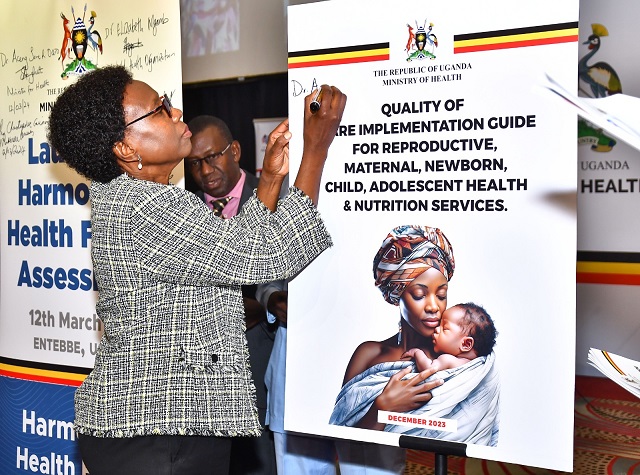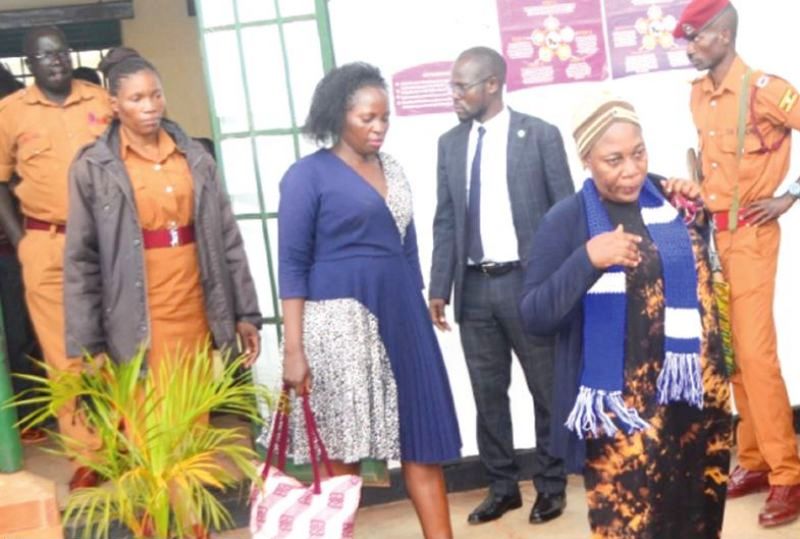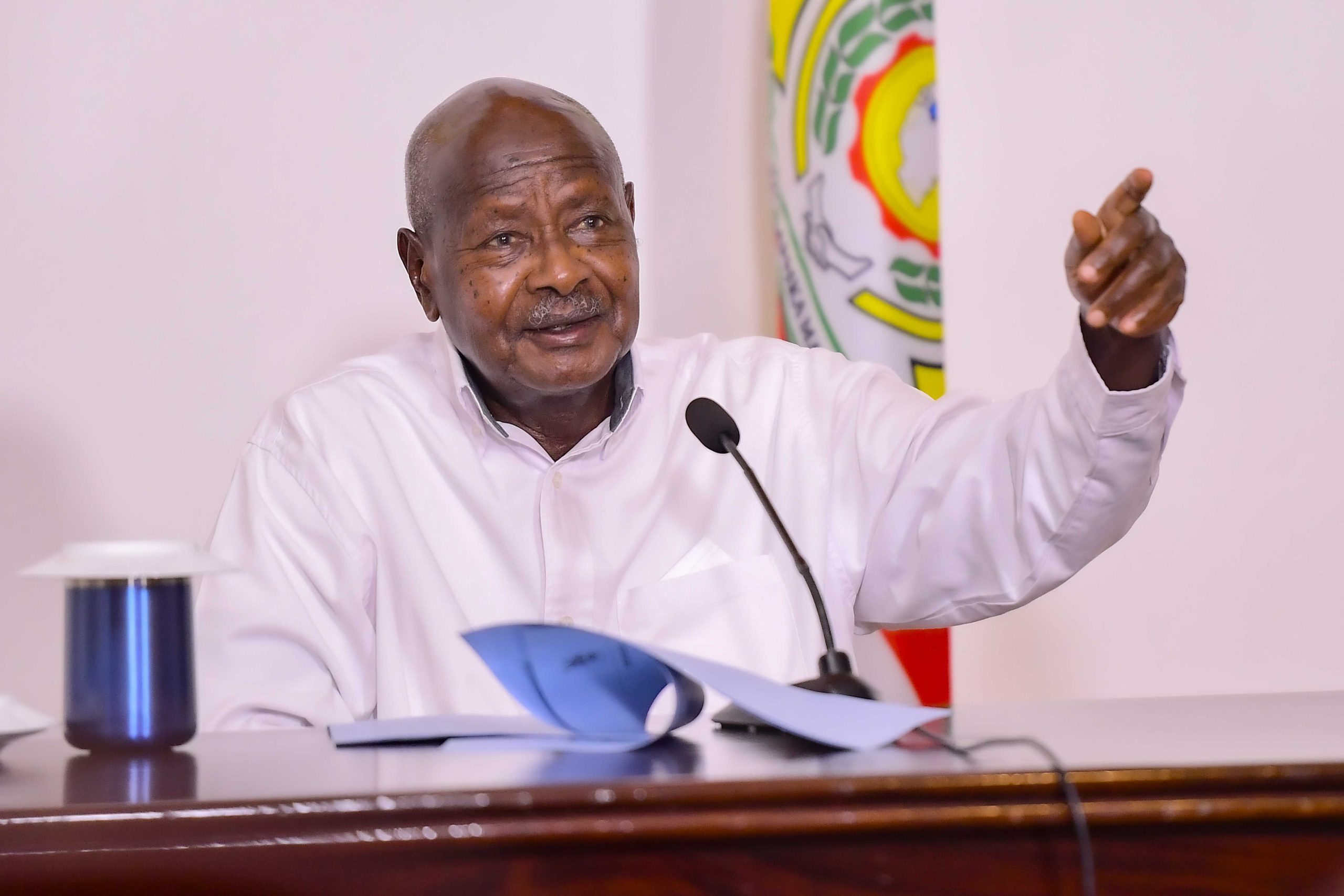Money Talks, but Healthcare Still Walks: Uganda’s Pay Increase Paradox
The Minister of Health, Dr. Jane Ruth Aceng, has denounced the purported enhancement of healthcare worker salaries as a futile endeavor, citing a stark disconnect between remuneration increments and the quality of healthcare service delivery. The dismayed minister aired her grievances during the tenth annual conference on healthcare quality improvement held on Tuesday in Wakiso, Uganda.
Aceng lamented that despite the government’s initiative to augment the salaries of medical personnel by a staggering 100 percent in 2022, the anticipated surge in service quality has remained elusive. She expressed her disappointment, stating, “unfortunately salary enhancement is not translating into better health service.”
The salary revisions saw a substantial increase across various medical positions. Senior medical consultants witnessed their earnings ascend from 7.3 million shillings to a lofty 17.4 million shillings. Similarly, medical consultants’ salaries surged to 12.7 million shillings, while principal medical officers now command 8 million shillings, up from 4.5 million shillings. Even enrolled nurses, considered at the lower end of the medical hierarchy, saw their earnings inflate from 613,000 shillings to 1.3 million shillings.
The conference, convened at the opulent Imperial Royale Hotel in Entebbe, congregated a plethora of stakeholders including ministry leaders, regional and district healthcare authorities, academics, researchers, innovators, donors, and representatives from civil society organizations. Deliberating under the theme “Innovations to Strengthen Healthcare Systems for Delivery of Quality HealthCare in Resource-Limited Settings,” participants engaged in critical assessments of existing systems and models to discern areas requiring elimination, fortification, or enhancement to yield improved outcomes.
Emphasizing the urgency of the healthcare agenda, Aceng reminded attendees of the government’s ten-year strategic plan, slated to conclude in 2030, aimed at achieving universal healthcare coverage. She rebuffed the notion of 2030 as a panacea for systemic deficiencies, urging medical practitioners to redouble their efforts in ensuring optimal outcomes for patients, the ultimate beneficiaries of healthcare services.
Expressing concern over resource misallocation and inefficiency, Aceng underscored the imperative of fostering accountability and commitment in resource utilization, particularly amidst constraints. Her sentiments echoed broader concerns within the healthcare community regarding the mismanagement of resources, exacerbating the challenges of delivering quality healthcare services.
While acknowledging Uganda’s strides in healthcare delivery, Dr. Jessica Healey from USAID voiced apprehension regarding potential setbacks engendered by the recent enactment of the Anti-homosexuality law. She warned of its adverse implications on patient access to healthcare, positing that fear of persecution could deter vulnerable segments of the population from seeking essential medical assistance.
Dr. Elizabeth Mgamb, representing WHO’s country representative, lauded Uganda’s collaborative approach towards healthcare provision, stressing the importance of continuity in service delivery even in the absence of certain partners. She urged participants to seize the conference as an opportunity for introspection and collective action towards bolstering healthcare systems and resilience.
In a bid to address systemic deficiencies, Minister Aceng unveiled two tools: the Harmonised Healthcare Facility Assessment Guide and the Guide for Implementation of Quality Reproductive Maternal, Newborn, and Adolescent Health and Nutrition Services. She lauded the contributions of development partners including USAID, JICA, and WHO in advancing Uganda’s healthcare agenda, despite the prevailing challenges.
The Minister’s scathing critique unveils a distressing reality wherein substantial salary increments for healthcare workers have failed to catalyze commensurate improvements in service quality. As stakeholders grapple with the widening chasm between expectation and reality, the imperative for decisive action to rectify systemic deficiencies looms large, lest Uganda’s healthcare system descends further into disarray.
Table: Comparative Salaries Before and After Enhancement
| Position | Previous Salary (UGX) | Enhanced Salary (UGX) |
|---|---|---|
| Senior Medical Consultant | 7,300,000 | 17,400,000 |
| Medical Consultant | – | 12,700,000 |
| Principal Medical Officer | 4,500,000 | 8,000,000 |
| Enrolled Nurse | 613,000 | 1,300,000 |




















